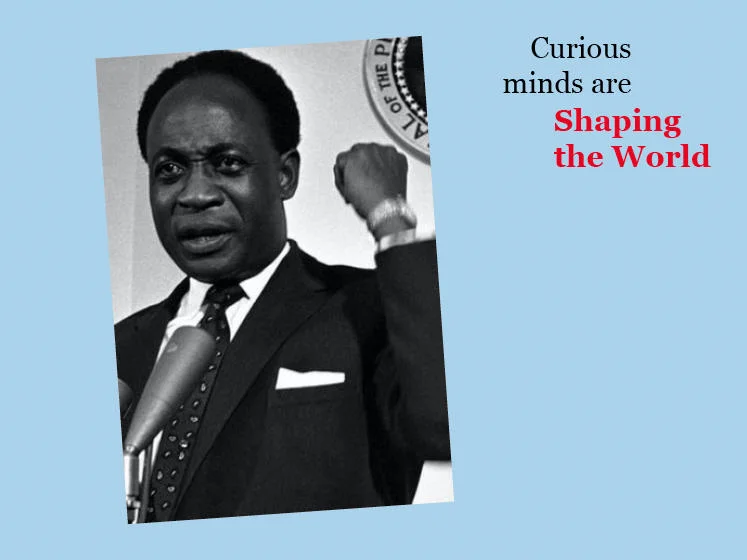Kwame Nkrumah
PhD student 1945-46

Kwame Nkrumah (1909-1972) was a Ghanaian politician, political theorist, and revolutionary. He was the first Prime Minister and President of Ghana, having led the Gold Coast to independence from Britain in 1957. An influential advocate of Pan-Africanism, Nkrumah was a founding member of the Organization of African Unity. Nkrumah briefly attended LSE for one term as a PhD student from 1945, through to 1946.
After attending Lincoln College as an undergraduate, and the University of Pennsylvania as a postgraduate, Nkrumah, then known as Francis Nkrumah, moved to London and in June 1945 began investigating completing his PhD at LSE. In June L G Robinson, Dean of the Graduate School, invited Nkrumah to an interview with himself and Professor Morris Ginsberg. Robinson wrote to Ginsberg that Nkrumah wished to return to the Gold Coast, a British colony, and hoped to obtain his PhD in Britain.
Initially had Nkrumah applied to finish his thesis at UCL but Professor Stanley Keeling suggested registering at LSE as his proposed thesis appeared to be closely related to sociology and anthropology. In 1945 Nkrumah was enrolled as a PhD student at LSE – though his approach, choice of subject and its relationship with anthropology were points of contention between himself and the School. Ultimately, Nkrumah went on to continue his studies at UCL.
Nkrumah remained in Britain until November 1947 when he returned to the Gold Coast and immersed himself in politics and forming the Convention People’s Party campaigning for full independence from Britain. Despite the arrest of Nkrumah and other CPP leaders in 1950 the party won a landslide victory in 1951 and Nkrumah was released from prison to become Leader of Government Business. In 1952 he became Prime Minister and in 1957 Ghana achieved independence as a full member of the Commonwealth.
His administration was primarily socialist as well as nationalist. It funded national industrial and energy projects, developed a strong national education system and promoted a pan-Africanist culture.
Nkrumah was deposed whilst on a state visit to North Vietnam and China and never returned to Ghana. He settled in Guinea and died in 1972.
Sources: Wikipediaand LSE History Blog